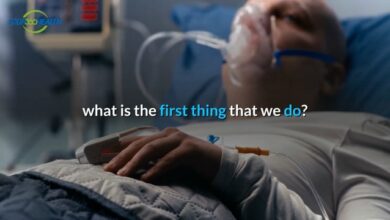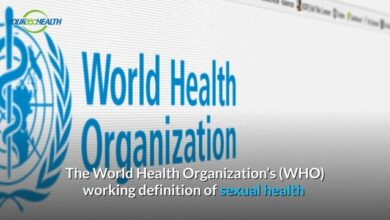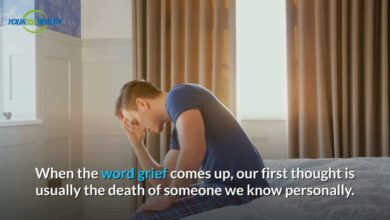Forgiveness Will Challenge Your Life Story (For the Better)
By Reverend Pedro S. Silva II, Veteran, Author, Public Speaker, Podcaster
“Forgiveness becomes an empowering act of spiritual alchemy, a powerful medicine transforming the hurt into a source of deeper compassion and relationship with oneself and others in the Hoop of Life.” – Dr. Anita Sanchez
When writing about the benefits and virtues of forgiveness, it is difficult not to stumble over the many cliches that are meant to help convince us to let go of resentments, grudges, offenses, and hurts. Some of my favorites are:
- Resentment is like taking poison and waiting for the other person to die.
- To err is human. To forgive, divine.
- To forgive is to set a prisoner free and discover that the prisoner was you.
- “Vengeance is mine.” says the Lord.
As someone who has a forgiveness practice that I engage in on an almost daily basis, I can attest to the fact that there is validity to these statements. They have become cliches for a reason. However, what I have also observed after many failed attempts to encourage people to forgive, is that the truth of them is something that is not readily accessible until after someone forgives. In other words, offering statements like these do relatively little to encourage actual forgiveness. It has about the same effectiveness that telling someone about a meal you ate would have in satisfying their hunger.
While there are very few people who would deny that withholding forgiveness does nothing more than compound the suffering one endures and can contribute to illness, depression, and a limited ability to form relationships that can endure challenges, many of us still find forgiveness too challenging to put into practice. In this article, we will explore some thoughts on how to access our ability to forgive.
Forgiveness is a choice. To forgive or not to forgive.
For all of our good intentions, trying to convince many people that they “should forgive” does more to create resistance to the option of forgiving than it does to attract them to it. When we are harmed, regardless of the perceived severity, it has the potential to change our self-perception–sometimes in seemingly irreparable ways. And as a consequence, our protective instincts put us on alert for duplicate threats to our sense of being. This is an evolutionary trait meant to keep us alive. So according to our base instincts, forgiveness is counterintuitive. It is tempting fate. We survived once. We may not survive again. We must protect ourselves from future harm. From this mindset, telling someone that they “should forgive” is subconsciously experienced as telling someone that they should risk their lives. Many rational people will resist that notion.
However, when forgiveness is presented as a choice that a person can choose to make or not, there is a sense of empowerment that arises. Rather than focusing our attention on whether someone else will have power over us, we begin to focus first on our power to choose and next, on our power of perception. From this place of choice, we can say, “Yes. Someone harmed me. But they do not have the power to define me. I choose what’s the next chapter in my story.”
You are more than the stories you tell. You are the author. Forgiveness is a rewrite.
No one can forgive someone and remain the same. And that’s precisely why it’s such a difficult choice for many of us to make. Often, we experience ourselves as simply characters in the stories we and others tell about who we are. In our minds, this becomes our identity as well as the identity of our offenders. If our character is shaped solely by what has happened to us, we may unconsciously build many of our life’s structures around maintaining the arc of that narrative. When we choose to forgive, we disrupt that narrative and can thereby author a new one. But it does require that we stop identifying with the former narrative.
Forgiving the unforgivable.
In her book, The Four Sacred Gifts: Indigenous Wisdom for Modern Times, author, speaker, and corporate consultant, Dr. Anita Sanchez, talks about the power to forgive the unforgivable. To illustrate this power, she shares the story of her father’s murder. Mistaken for a black man, with whom
her father’s killer had had an argument, the man shot and killed her dad and changed the trajectory of Anita’s life forever. As she grew and began to establish success through academic achievement and her career as a corporate trainer, author, and thought leader, Anita carried the pain of her past with her as a part of her identity. But as she navigated the journey of teaching the wisdom of indigenous elders that she shares in her book, she made the choice to reclaim that power and forgive every character in her narrative to include herself and her father, who prior to his murder had also been her abuser. In so doing, she rewrote her story and expanded her capacity to share these gifts with others:
1. The power to forgive the unforgivable.
2. The power to heal.
3. The power of unity.
4. The power of hope.
As a part of her work, she shares these thoughts on what forgiveness is and what it is not to help those who would like to transform their lives by choosing to practice this sacred gift.
“Forgiveness is not an avoidance of justice, lack of confidence, forgetting the hurt or mistreatment, weakness, or betrayal of yourself, your cultural or your gender group. Forgiveness is loving yourself so much that you choose not to stay locked in the righteousness of our pain and hurt – the insidious illusion that these pains and hurts are my identity.”
Forgive. Don’t forget. But, remember responsibly.
“Victims have an interest in enhancing the suffering they experienced. But I had a responsibility to tell my story rightly, or I would wrong another person. You can’t forgive or apologize unless you have told the story rightly.” – Professor and Theologian Miroslav Volf.
When he tells his story of being interrogated in the former Yugoslavia, on Christian News – Christian Today, 29 Oct. 2014, Croatian Theologian and Henry B. Wright Professor of Theology and Director of the Yale Center for Faith and Culture at Yale University, Miroslav Volf is honest about the temptation he feels to tell his story in such a way that further draws the contrast between the abuser, and the abused. I imagine it is safe to say that many of us know that temptation very well.
Especially in a climate where victims do not always receive justice, people may feel compelled to enhance their stories in an effort to communicate the severity of their pain or the suffering they are experiencing. Acknowledging this possibility in no way negates the wrongs that may have been perpetrated against someone or the promises that may have been broken. However, when we allow the desire to be heard to become a prerequisite for choosing forgiveness to the degree that we exaggerate, we run the risk of over identifying with our narrative. This occurs because we have now become complicit in our own suffering. And as a consequence, it is more difficult to choose a path toward peace and well-being.
Forgiveness does not require an apology.
Another truth-telling cliche is the idea that hurt people, hurt people. That is to say that most people who perpetrate harm were at some point likely harmed by someone else. For this reason, it may be very difficult for them to apologize without first doing their own forgiveness work. This says nothing of systems of harm and oppression where there is no single person that can be identified as a cause of harm. Therefore waiting for an apology from someone or some system that may very well not have the capacity to do so only prolongs our own suffering.
Waiting for an apology in order to move forward is essentially waiting for permission to heal from the individual or system that caused the harm. While an apology may make forgiving easier, requiring it will stunt your growth and increase the likelihood that the cycle of projecting or transferring pain onto someone else will continue. In many ways, forgiveness serves as an emotional, mental, and spiritual inoculation against the spread of harmful behaviors. When we forgive, we help break a cycle, disrupt a system, or change a paradigm of relational brokenness. The effects of which can ripple forward and backward for generations. Forgiveness is more than simply a service to ourselves; it is a service to all of our relationships.
In the final analysis, trying to motivate ourselves or someone else to forgive may not be the easiest of propositions. However, it is the best hope we have of reclaiming our power and restoring our potential to create better relationships, communities, and systems capable of reflecting our highest ideals.




